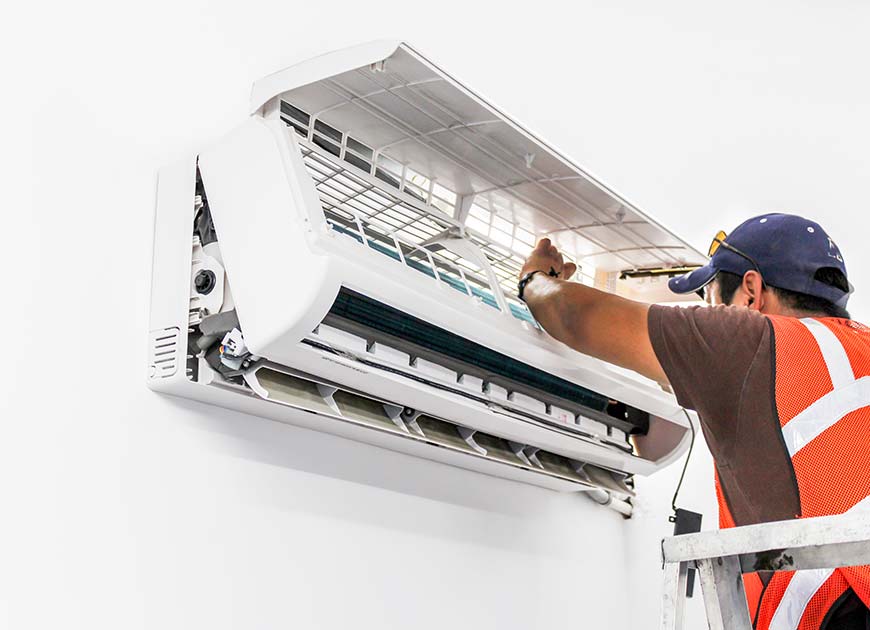In the scorching heat of summer or the biting cold of winter, our reliance on HVAC (Heating, Ventilation, and Air Conditioning) systems becomes more apparent than ever. These systems play a crucial role in maintaining comfortable indoor temperatures, but they also consume a significant amount of energy. To ensure optimal performance and efficiency, regular HVAC system maintenance is essential. In this guide, we’ll explore the importance of HVAC system maintenance and how it can be maximized through professional air conditioning services.
Understanding the Importance of HVAC System Maintenance
HVAC systems are complex machines composed of various components working together to regulate indoor temperature and air quality. Over time, these components can wear out, accumulate dirt and debris, or experience malfunctions, leading to reduced efficiency and higher energy consumption. Regular maintenance helps prevent these issues by addressing minor problems before they escalate, optimizing system performance, and extending its lifespan.
The Role of HVAC Contractors in Maintenance
HVAC contractors are trained professionals equipped with the knowledge and expertise to inspect, repair, and maintain HVAC systems. Their services encompass a range of tasks, including cleaning ducts, replacing filters, lubricating moving parts, checking refrigerant levels, and calibrating thermostats. By entrusting maintenance to HVAC contractors, homeowners and businesses can ensure that their systems operate at peak efficiency throughout the year.
The Benefits of Routine Maintenance
Routine HVAC system maintenance offers numerous benefits, both in the short and long term. Firstly, it improves energy efficiency, reducing utility bills and environmental impacts. By keeping the system clean and well-tuned, airflow is optimized, and energy waste is minimized. Additionally, regular maintenance enhances indoor air quality by removing dust, allergens, and pollutants from the air ducts, promoting a healthier living or working environment.
Preventive Maintenance vs. Reactive Repairs
One of the key distinctions in HVAC system maintenance is between preventive maintenance and reactive repairs. Preventive maintenance involves scheduled inspections and tune-ups performed proactively to prevent breakdowns and ensure smooth operation. On the other hand, reactive repairs address issues that arise unexpectedly, often resulting in higher costs and downtime. By prioritizing preventive maintenance, homeowners and businesses can avoid the inconvenience and expense of emergency repairs.
Maximizing Efficiency through Professional Services
Professional air conditioning services provided by HVAC contractors offer a comprehensive approach to maximizing efficiency. These services typically include thorough inspections, cleaning, lubrication, and adjustments tailored to the specific needs of the HVAC system. HVAC professionals also have specialized tools and diagnostic equipment to spot and fix issues early.
Seasonal Maintenance Tips
To maintain optimal efficiency year-round, it’s essential to follow seasonal maintenance tips recommended by HVAC professionals. Before hot weather arrives, clean or replace air filters, inspect ductwork, and check refrigerant levels in spring. In the fall, before temperatures drop, inspect and repair the HVAC system’s heating components.
Investing in Energy-Efficient Upgrades
In addition to regular maintenance, investing in energy-efficient upgrades can further enhance the efficiency of HVAC systems. Upgrades such as programmable thermostats, zone control systems, and high-efficiency air filters can significantly reduce energy consumption and operating costs. HVAC contractors can provide guidance on selecting the most suitable upgrades based on the specific requirements and budget constraints of their clients.
The Importance of Regular Filter Replacement
One of the simplest yet most impactful maintenance tasks is regular filter replacement. Air filters trap dust, pollen, and other airborne particles, preventing them from circulating throughout the HVAC system. Over time, filters become clogged, obstructing airflow and forcing the system to work harder to maintain temperature settings. By replacing filters according to manufacturer recommendations, homeowners and businesses can improve airflow and energy efficiency.
Ensuring Proper Ventilation
Proper ventilation is essential for maintaining indoor air quality and maximizing HVAC system efficiency. Blocked or poorly maintained vents can restrict airflow, leading to uneven heating or cooling and increased energy consumption. HVAC contractors can inspect vents and ductwork for any obstructions or leaks and recommend solutions to ensure proper ventilation throughout the building.
Monitoring Energy Consumption
Regular monitoring of energy consumption can provide valuable insights into the performance of HVAC systems and identify opportunities for improvement. Smart thermostats and energy monitoring devices enable homeowners and businesses to track energy usage in real-time and identify trends or anomalies that may indicate inefficiencies. By analyzing this data, HVAC contractors can recommend adjustments or upgrades to optimize energy efficiency.
Conclusion
In conclusion, maximizing efficiency with air conditioning services requires a proactive approach to HVAC system maintenance. By working with HVAC experts and emphasizing preventive maintenance, homeowners and businesses may maximize system efficiency, reduce energy use, and extend lifespan. With skilled services, energy-efficient renovations, and regular maintenance, keeping a comfortable interior atmosphere is cost-effective and environmentally friendly.

